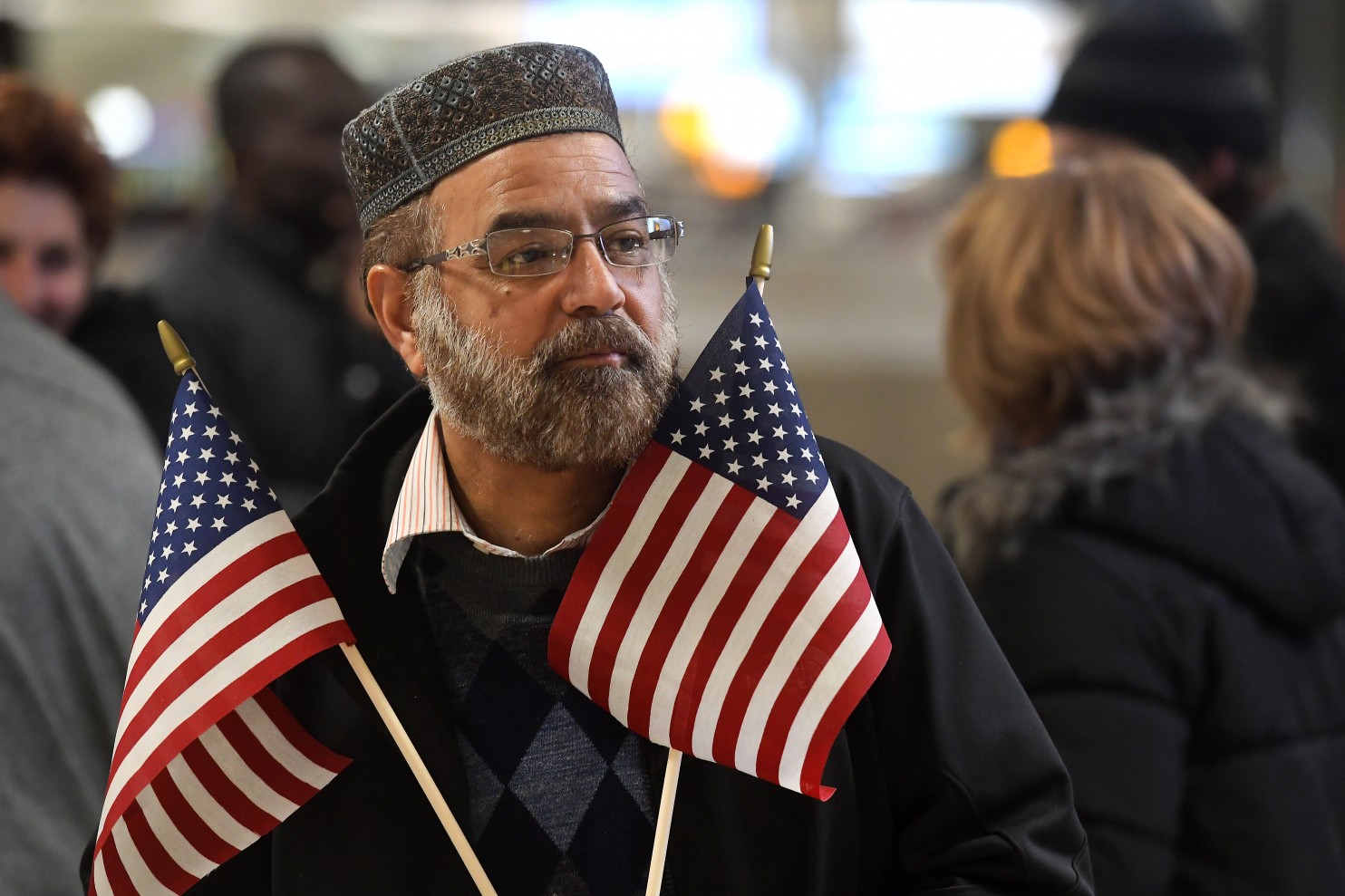
Donald Trump says his travel ban is about keeping bad people out of the United States:
Everybody is arguing whether or not it is a BAN. Call it what you want, it is about keeping bad people (with bad intentions) out of country!
— Donald J. Trump (@realDonaldTrump) February 1, 2017
So who exactly is our president afraid of? Maybe it’s the Al Zoubi family, who fled their home in Daraa, Syria at the beginning of the civil war in their home country and spent years as refugees in Jordan before being resettled in Michigan almost two years ago:
Perhaps it’s Dr. Suha Abushamma, an internal medicine resident at the world-renowned Cleveland Clinic who was forced to board a flight back to Saudi Arabia, where she was born and raised, because she carries a Sudanese passport. While Saudi Arabia isn’t included in Trump’s ban, Sudan is. If she were carrying a Saudi passport she would have breezed through.
Meanwhile, less than a third of Americans actually believe the travel ban will make them safer.
Over the weekend Trump’s surrogates were denying that the president’s executive order amounts to a Muslim ban, claiming that it’s not about religion, but about danger. So, between 1975 and 2015, just how many people have been killed by acts of terrorism committed on U.S. soil by nationals of the seven countries – Iran, Iraq, Libya, Somalia, Sudan, Syria, and Yemen – named in Trump’s ban?
After pouring through reams of material from databases, media reports, court documents, and so on, Cato Institute immigration expert Alex Nowrasteh concluded:
Trump’s action “is a response to a phantom menace.” Over the last four decades, 20 out of 3.25 million refugees welcomed to the United States have been convicted of attempting or committing terrorism on U.S. soil, and only three Americans have been killed in attacks committed by refugees—all by Cuban refugees in the 1970s.
Zero Americans have been killed by Syrian refugees in a terrorist attack in the United States.
Between 1975 and 2015, the “annual chance of being murdered by somebody other than a foreign-born terrorist was 252.9 times greater than the chance of dying in a terrorist attack committed by a foreign-born terrorist,” according to Nowrasteh.
So where have foreign-born terrorists hailed from? The top-four countries, in terms of responsibility for murders, are Saudi Arabia, United Arab Emirates, Egypt, and Lebanon, none of which are covered by Trump’s order.
But in the face of all this misguided fear, some beacons of hope continue to shine brightly, even as the Trump administration seemingly works its hardest to extinguish the light.
Excellent points in an excellent post, professor.